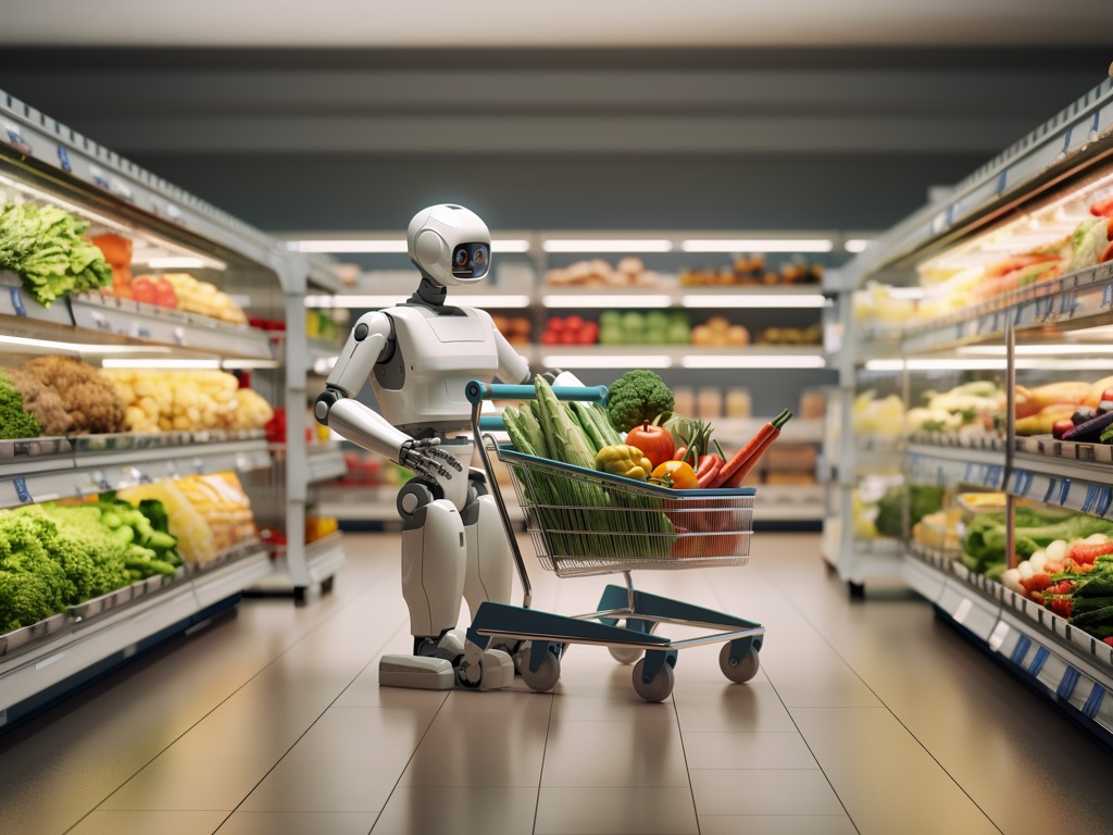Leading supermarket retailer Coles has been pioneering the use of AI technology with a visionary approach for nearly a decade. Its AI journey, which started with an ambition to transform operations, has matured into an impressive suite of AI models that now drive the day-to-day engine of its sprawling operations.
What began as a visionary approach to revolutionise operations has evolved into a sophisticated ecosystem of AI models that power the core functions of Coles’ extensive operations.
Through the strategic implementation of AI, Coles has achieved unparalleled accuracy in predicting the flow of over 20,000 stock-keeping units (SKUs) to its network of 850 stores nationwide.
The feat is made possible by harnessing insights from a staggering array of over 2,000 diverse data sets, enabling Coles to make a remarkable 1.6 billion predictions each day and predictions are not just numbers; they are the lifelines of a system meticulously designed to ensure that every Coles customer finds precisely what they need, precisely when they need it.
AI technology is playing a pivotal role in delivering personalised shopping experiences to Coles’ customers. Through a sophisticated AI model, over four million FlyBuys customers are receiving tailor-made weekly product recommendations that are finely tuned to their preferences while also considering broader customer patterns.
In a strategic partnership with Microsoft, Coles is now transitioning from the initiation phase of AI solutions to a robust scaling-up phase.
At the heart of this endeavor lies the democratisation of data, a move aimed at empowering teams across Coles to harness the power of data-driven insights, drive intelligent automation, and unlock unprecedented value across the organisation.
“Win-win solutions are those where we are helping our team members and our customers at the same time. Our technological investments into operational efficiency have translated into real, tangible benefits for our shoppers,” Silvio Giorgio, GM of Data & Intelligence at Coles Group said.
Coles has leveraged Microsoft Azure HCI alongside NVIDIA’s A16 GPUs to run large-scale AI workloads with great efficiency.
One example of how this is benefitting the retailer and its customers is how Coles uses Computer Vision to revolutionise the checkout process, particularly in the selection and scanning of fresh produce.
The traditionally manual task of scrolling through multiple options to identify and select produce has been simplified. Computer Vision systems can accurately scan items – even through plastic bags – identifying them with a high level of accuracy. This streamlining substantially reduces wait times and enhances overall customer satisfaction at checkout.
Coles has also identified an opportunity to improve queue monitoring at its supermarket deli counters. The company found that customers are likely to abandon their purchase if service is not promptly available – typically, within 20 to 40 seconds.
In response, Coles has introduced Computer Vision technology to monitor deli counters. This technology is programmed to alert team members when a customer approaches, ensuring that assistance appears just when they need it.
By harnessing these AI solutions, Coles is not only enhancing operational efficiency but elevating the shopping experience, affirming its commitment to customer service excellence through innovation whilst acting on its commitment to responsible use ensuring these solutions cannot identify people or collect personal information.
‘Intelligent Edge Backbone’ (IEB)
Coles has pioneered a groundbreaking approach to tackle the challenges of modern retail with the creation of their ‘Intelligent Edge Backbone’ (IEB). Leveraging cutting-edge technology from Microsoft Azure Stack HCI, Azure AI, and ML, Coles has established a digital infrastructure that sets a new standard in the industry.
In a retail landscape characterized by dispersed operations spanning numerous sites, Coles operates over 1,800 locations, each serving as a crucial node within their network.
Recognising the need for a unified solution capable of handling the complex demands of large-format supermarkets, Coles embarked on the development of the IEB.
Unlike previous solutions that were limited to specific tasks or locations, the IEB represents a holistic platform designed to streamline data management and provide consistency across the entirety of Coles’ operations.
At its core, the IEB also acts as a central hub for collecting and processing data from AI models deployed throughout Coles’ network. This integration enables a multitude of real-time applications, including queue monitoring, personalised customer assistance utilising advanced produce recognition technology, and optimization of point-of-sale systems.
Moreover, the IEB facilitates seamless communication by promptly alerting team members through various channels, such as mobile devices, checkout terminals, or in-store announcements via speakers.
“The IEB is effectively our central nervous system, connecting all of the technological infrastructure we have in stores to a central plane that manages events, triggers alerts and recommends actions said, Roslyn Mackay, Head of Technology Innovation at Coles Group.
“It also collects a wealth of data from which we can extrapolate insights that each store can action in customised ways that work best for them,” she said.
The IEB’s value extends beyond the immediacy of customer-facing services. It also enables insights and metadata that inform Coles’ strategic, longer-term operational decisions. Additionally, it offers valuable intelligence for planning and rostering. That’s helping Coles to align team member schedules more efficiently with anticipated peak times, to take just one example.
Turning NPS scores into valuable insights
The Finance and Operations team has been on a digital insights journey for the past two years, looking at how to build a best-in-class commercial governance and support network for 850 stores.
“The whole intention behind the Operations team’s digital insights journey is to be able to give store teams the right information at the right time to make their jobs easier.
We also want to understand the impact of and relationship between our operations and the customer experience,” Rich Walker, GM of Finance, Operations & Sustainability at Coles Group said.
The team receives thousands of customer surveys per week, where each customer gives their shopping experience a score. The company also collects thousands of pieces of verbatim feedback every week.
While the scores were easy to digest and analyse, the team found that there was often a disparity between the scores and the actual customer sentiment.
“We’d get a 9 out of 10 score, but then have the customer saying things like, ‘I couldn’t find a spot in the car park’ or ‘my favourite brand of cereal wasn’t stocked’.
\We realised that we were missing out on the richness of the insights in that verbatim feedback, simply because it’s not humanly possible to analyse the vast number of pieces of written feedback every week,” Rich Walker said.
Coles turned to generative AI to supercharge the semantic analysis of this qualitative data. The team built a model using Azure OpenAI’s LLM capabilities, Microsoft Fabric and PowerBI to ingest, analyse and generate insights from the data.
It reads the comments and can effectively summarise the top three things each store needs to work on, as well as categorise the comments into 30-40 semantic themes, including product quality, availability, wait times, prices, team friendliness and more.
The Operations teams can then overlay contextual information around time of day, store location and even rostering and compare this against the customer sentiment analysis to get a comprehensive understanding of how operational decisions and factors affect the customer experience.
“AI has given us the extraordinary ability to derive insight at a deeper level than ever before. And the excitement around the technology is electrifying.
“We are AI-ready and looking forward to what the technology can do for our people, but we are also moving with caution and a great sense of responsibility in how we use data and artificial intelligence,” said Silvio Giorgio.
Coles is also keen to explore how AI can continue to help improve its operations to provide safer and more inclusive shopping experiences that reflect the diverse needs of its customers.







